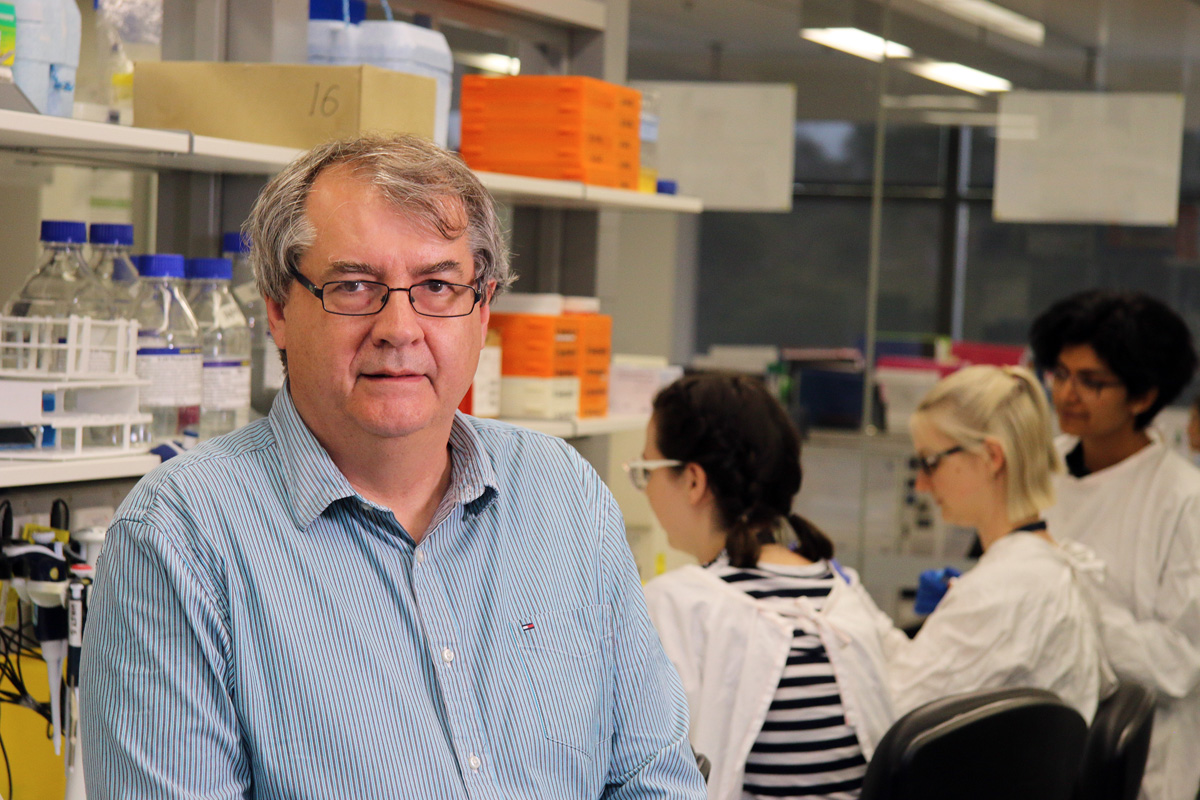Researcher Highlights
Pregnancy, Fetal Development and Newborn Health
Jon Hirst
Professor Jonathan Hirst's primary research interest is centred on the development of fetus during late gestation and the prevention of adverse pregnancy outcomes. This work involves examining the effects of stressors that compromise late pregnancy and adversely affect the growing fetus. In addition, his studies examine the adverse effects of premature birth which deprives the fetus of the nurturing in utero environment. The consequent loss of development promoting hormones reduces growth of the baby’s brain leading to long-term damage and behavioural deficits that stretches into childhood and beyond.

A major focus of Professor Hirst’s team has been on the role of neurosteroids in pregnancy and in the control of the development of the fetal brain. These steroid hormone derivatives are very high in the fetus during pregnancy and act as a modulatory system that links the mother’s environment with the placenta and fetal brain.
These steroids also regulate arousal-like activity in the fetus in late pregnancy and are responsible for suppression fetal brain activity and for maintaining the fetus in a sleep-like state until delivery. This suppression of excitability has a major neuroprotective role that reduces the risk of brain damage following adverse events in pregnancy. Importantly, chronic stress in pregnancy down regulates these protective mechanisms that normally protects the fetal brain and increases the risk of brain injury. Preterm birth leads to a premature loss of these neuroprotective mechanisms and also increases the risk of brain injury in the prematurely born neonate.
Professor Hirst’s team is actively working investigation neurosteroid-based replacement and supplementation therapies as treatment of reducing the adverse effects of stressor in pregnancy or preterm birth. These treatments are designed to enhance neurosteroid-mediated protection of the brain of the fetus and newborn.
Key projects currently running in the laboratory are:
Optimising Brain Development During Pregnancy and After Preterm Birth.
This project examines hormonal factors that contribute to brain growth and conditions that prevent the fetal brain reaching normal growth rates. Reductions in brain development before birth can lead to cognitive delays in the children and behaviour disorders as the child develops into adulthood. The studies will focus on development of treatment that can be used immediately after preterm birth to improve and reduce deficits and maximize brain development.
Reducing the Impact of stressful Events in Pregnancy
A stressful event or lifestyle issues can have a major impact on the developing baby. If these stresses continue into late pregnancy they can have negative effects on the developing baby and can lead to the behavioural and learning disorders as the child develops. This project will examine the mechanisms induced by stress that lead to disruption of brain development and how they can be reversed.
Contact Professor Hirst for more information about current projects running in his laboratory and in the Mothers and Babies Research Centre.
The University of Newcastle acknowledges the traditional custodians of the lands within our footprint areas: Awabakal, Darkinjung, Biripai, Worimi, Wonnarua, and Eora Nations. We also pay respect to the wisdom of our Elders past and present.